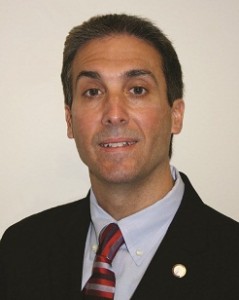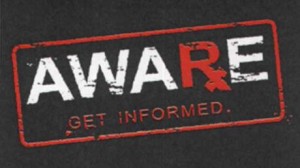 Dispose of Unneeded Medications to Protect Your Loved Ones
Dispose of Unneeded Medications to Protect Your Loved Ones
Guest post by Carmen A. Catizone
Prescription drug abuse has reached epidemic proportions across the country and touches all generations. In 2011, over 6 million people aged 12 or older abused prescription drugs, according to the Substance Abuse and Mental Health Services Administration, a government agency that conducts a national survey on related topics each year. The same survey showed that over 50% of people abusing these drugs got them from friends or family for free. Often those who abuse drugs, including teens, take them right of the medicine cabinet.
Ridding the home of unused, expired, or unneeded medications, helps to prevent the drugs from falling into the wrong hands. Disposing of these unneeded drugs can also help to protect those under your care by helping to prevent accidental ingestion of the wrong medication.
Currently, law enforcement must be present if a person wishes to dispose of prescription controlled substance medications, such as certain pain pills. Controlled substance medications have a higher potential for abuse and it is important to dispose of them properly when they are no longer needed.
To provide opportunities for legal disposal of unneeded controlled substance medications, the Drug Enforcement Administration (DEA) began coordinating National Prescription Drug Take-Back events in September 2010. With locations in every state across the county, consumers disposed of 2 million pounds of unwanted medication during the first five DEA Take-Back Days, illustrating the need for this service.
The next DEA Take-Back day event is Saturday, April 27, 2013. On this day, from 10 am to 2 pm, consumers may dispose of any unused, unwanted pills, including controlled substances. Consumers can find the nearest take-back locations using the online DEA Take-Back Day locator to be available after April 1. A link to the locator will be available on the AWARxE website. DEA encourages consumers to check the locator often as new sites will be added up until April 27.
The DEA Take-Back Day service is free and anonymous, with no questions asked. Sites will accept tablets, capsules, and all other solid dosage forms of unwanted medication. Personal information may be blacked out on prescription bottles, or medications may be emptied from the bottles into the bins provided at the events.
Every year, more than 15,000 people die from overdoses of prescription painkillers, reports the Centers for Disease Control and Prevention. In 2009 alone, 1.2 million emergency department visits were related to misuse or abuse of prescription drugs, compared with 1.0 million visits related to use of illicit drugs such as heroin and cocaine.
AWARxE encourages everyone to participate the DEA Take-Back day to protect their family, friends, and community and to help curb these disturbing trends. Taking a few minutes to collect the unneeded medications from your home and dispose of them at a nearby collection site may prevent a medication injury or even save a life.
As for current, needed medications, AWARxE encourages consumers, including caregivers, to securely store all medications in the household. One in four grandparents indicate that they leave medications in places that children and teens can easily access such as daily dose pill boxes, according to a CS Mott Children’s Hospital national poll. Parents, grandparents, and caregivers may want to lock medications in a secure cabinet or a medicine safe. In particular, controlled substance prescription drugs, such as certain pain medications and ADHD medications, should be securely stored. You may also wish to keep track of the number of pills left in the bottle.
Remember, even if you feel certain that members of your family will not misuse prescription drugs, sometimes prescription drugs are taken out of medicine cabinets by visitors to the home, such as a teen’s guests. In addition, medications that are not properly secured can easily fall into the hands of young children, leading to accidental ingestion and poisoning.
More information about drug disposal is available on the Find Disposal Information page of the National Association of Boards of Pharmacy (NABP) – Drug Disposal Locator. [7/8/2024 TCV Updated URL]
Carmen A. Catizone, MS, RPh, DPh, is the Executive Director of the National Association of Boards of Pharmacy® (NABP®) and the Secretary of the Association’s Executive Committee. He serves as a Governor of the Pharmacy Technician Certification Board (PTCB) of Directors and Chair of the PTCB Certification Council.
AWARxE® is a consumer protection program provided by the National Association of Boards of Pharmacy Foundation®. Founded in 1904, the National Association of Boards of Pharmacy is an impartial professional organization that supports the state boards of pharmacy in creating uniform regulations to protect public health.








